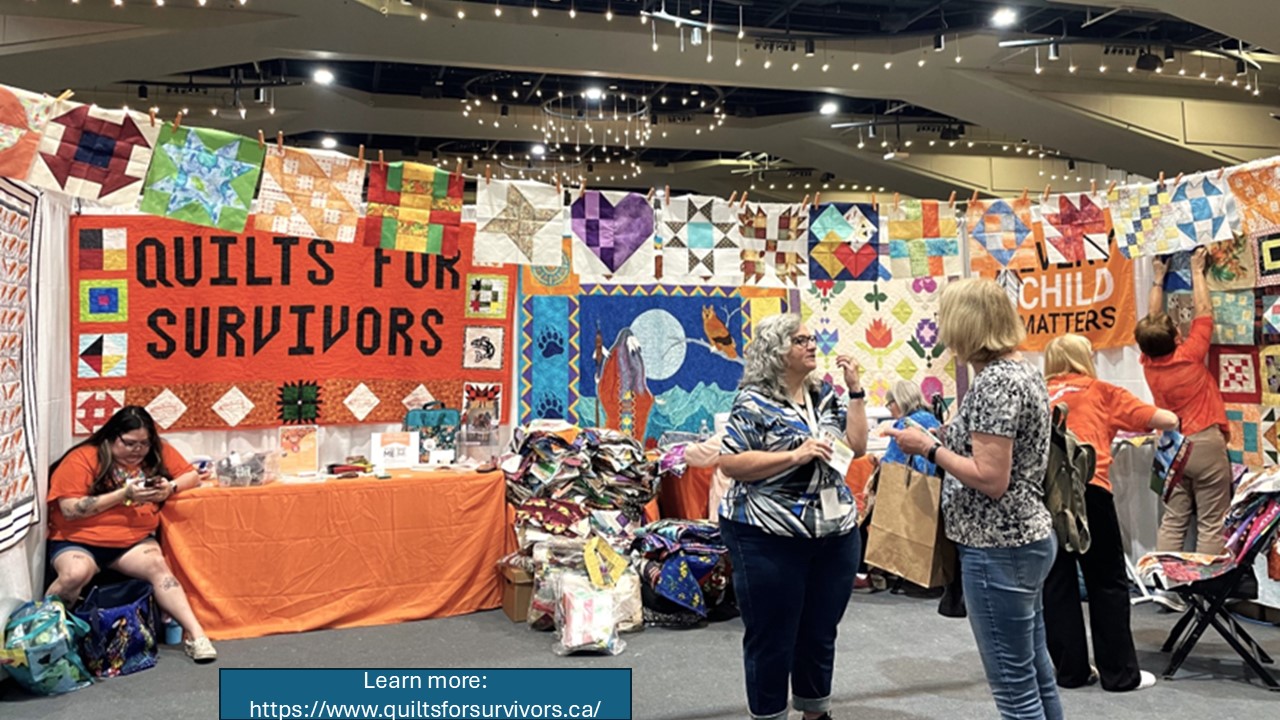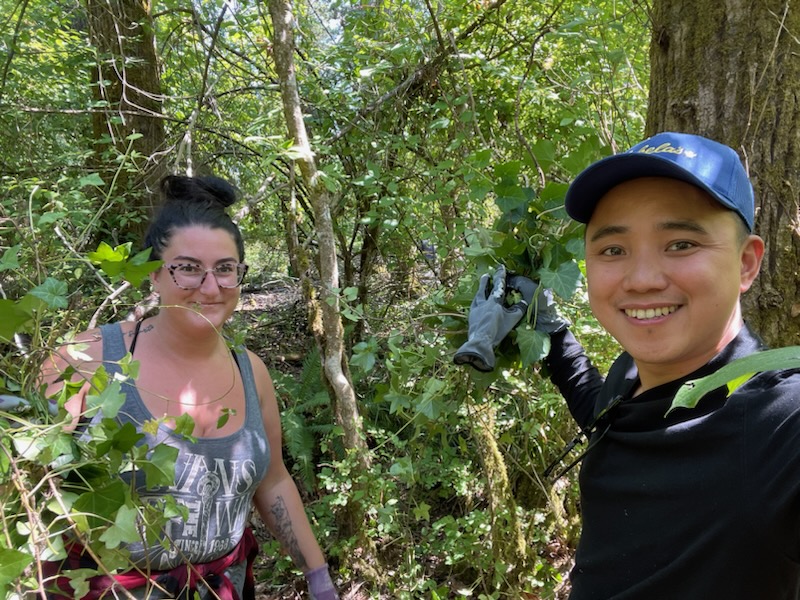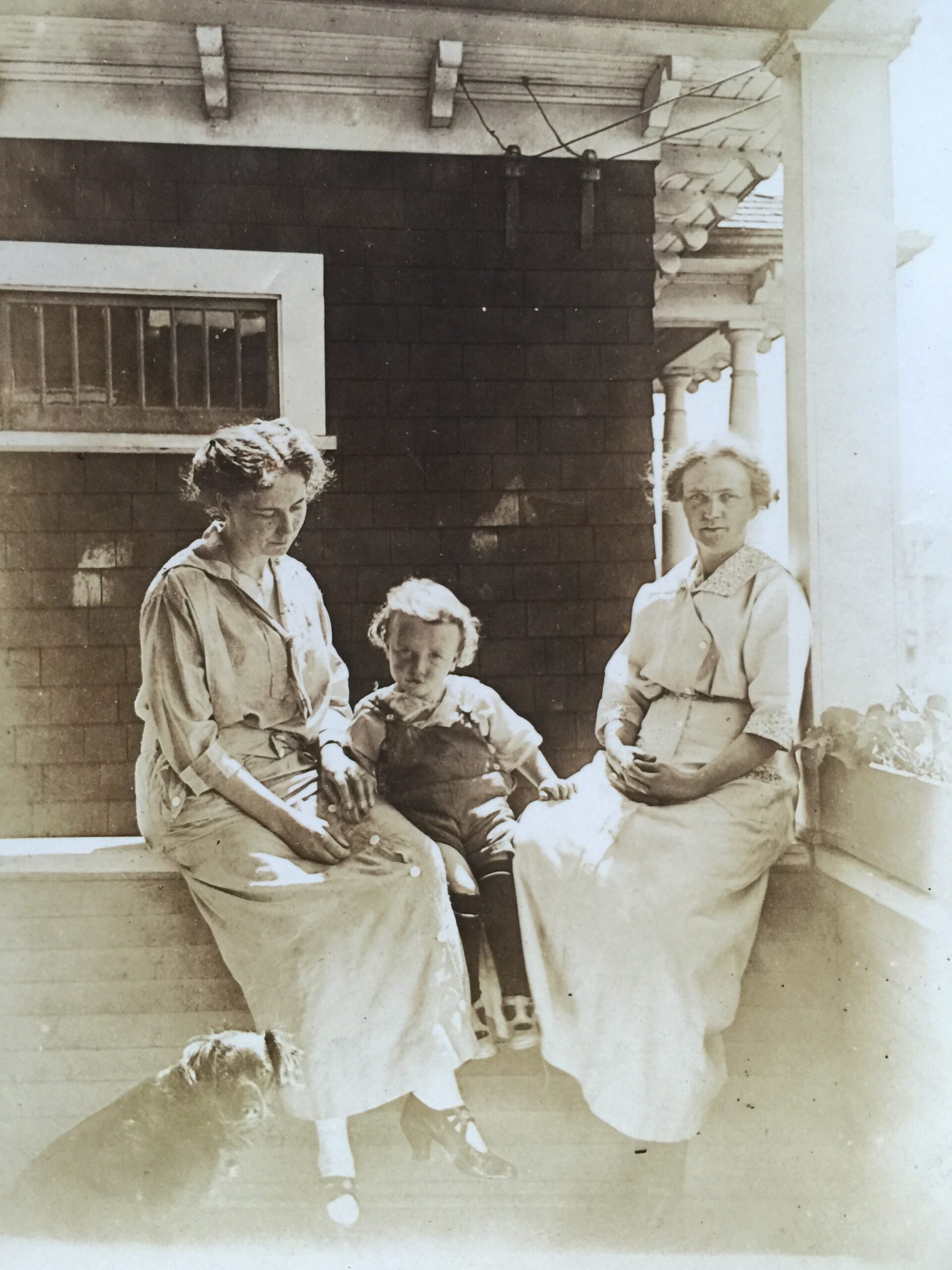What Truth and Reconciliation Means To You
This reconciliation sharing board is part of the ongoing commitment of the Victoria Division of Family Practice and the division-supported Victoria Primary Care Network toward Truth and Reconciliation.
I’ve lived half my life unaware of the realities and harms experienced by people navigating systems I was naively proud to be a part of designing.
My journey of T&R began by reading the testimonies of residential school survivors shared during the commission’s national tour. And for a long, uncomfortable time it felt like it would be impossible to ever repair the harms of colonization. Every system seemed terribly broken.
Then I discovered incredibly smart indigenous people who were willing to show me their ways of approaching wellness and community. The generosity of their teachings and friendship have been transformative and inspiring. Grateful for their perspective, I stopped wallowing and started aligning.
I’m committed to living the next half of my life actively seeking ways to listen, learn and discover radical new ways of approaching health and wellness.
It has been shared that there is no reconciliation without truth..... such an important aspect of our own understanding and how it shapes our next steps. We are all on a learning journey and we start where we are..... as we learn and gather information we begin to understand what we don't know and even what we know becomes deeper the more attention, support, feeling and reflection we put towards it. Every step is important!!
As a newcomer to this country, my cultural journey begins with acknowledging the territory I am on. It is important for me to be mindful of the lands I visit, ensuring I understand and respect the Indigenous territories. At UVic, I often introduce territory acknowledgements to international students, even if I am the only one to do so. It’s a learning process, and I’m grateful for the many community resources that help deepen our understanding. I also pass this knowledge on to my daughters. As temporary settlers, I ensure that our journey for truth and reconciliation continues, one family unit at a time. We’ve now been living, working, playing, studying, and appreciating the beautiful lands of the Lək̓ʷəŋən-speaking peoples, known today as the Songhees and Esquimalt nations, for two years. We are forever grateful!
– Patrick
September 30, 2024
Truth: They were children.
Truth: The last residential school closed in 1996.
Truth: My son was born in 1997. The children that attended that school are not much older than my own son.
When my boy was 6 years old, he dressed as superheroes, playing make believe saving the day from the villains of his own imagination.
He’d tire, come to me for comfort ahead of a safe and welcome rest.
Why my girl was six years old, she would wear her princess dresses and dance and sing with her plastic crowns on top of her head.
She would give me a crown and we would dance with joy together.
When their boys were six years old they were taken.
When their boys were six years old they were no longer allowed to play.
The villains were not imaginary, they were real.
When their girls were six years old they were taken.
When their girls were six years old, they took their crowns, their dancing and their joy.
In return gave them shame.
Many say residential schools were a “long time ago”, they were not.
It was not a long time ago, many survivors are my son’s generation, and he is not yet 30 years old.
I challenge those people to look at, or remember the six year old children in their own lives, would there be an expectation that, at any time, they would be expected not to carry scars from experiencing similar horrors that the survivors of residential schools carry?
There is not an expiry on healing.
There is not length of time when it would no longer matter.
I commit to remember the children, though they may have grown, to make space for their healing, their truths, and their story-telling, and to amplify their voices when I have the power to do so.
For me, it is a practice of listening, learning (unlearning) and ongoing self reflection. Self-reflection is not a one-time exercise. It’s a lifelong commitment to examining my own biases, privileges, and actions. It’s asking myself tough questions: How am I contributing? How can I be a better ally? What blind spots do I have? What can I be doing better? It’s about speaking up to create space for others even when it’s difficult or uncomfortable. Sitting with the feeling of being uncomfortable and examining it. Knowing that I won’t always say the right or do the right thing but being open to growth and learning from mistakes. Doing what I can, using my privilege to start difficult conversations, uplift Indigenous voices, support local artists and knowledge keepers, and a commitment to engaging with respect, humility and reciprocity.
Gratitude to Sarah Jim and the Jim family for welcoming Patrick and myself to participate in the W̱S͸ḴEM Ivy Project on their land in the Tseycum village in W̱SÁNEĆ. Invasive English ivy in this forest is a product of colonization and threatens the biodiversity of the sacred land. I am so grateful for the teachings I have received on the healing aspects of being in the forest, river bathing and plant medicine.
I commit to reciprocity and walking softly on the lands and waters that have been stewarded by Indigenous people here since the beginning of time. It is a great privilege to live harmoniously with the forest, waters, ocean, critters and creatures.
More on the project here: https://www.wsikemivyproject.com/
A part of my cultural learning journey has involved learning the truths of colonization in Canada through listening to and reading the stories of various First Nations, Metis and Inuit Peoples including their experiences in residential or industrial schools; the impact that these schools, colonization, being stripped of one's culture, and being separated from family have had on them; the unfair treatment with law enforcement that they have experienced; the lack of care they have received from the health care system; and so much more, as well as witnessing some of these realities first hand. Colonization has resulted in and continues to result in the deprivation of Indigenous Peoples from their language, culture, and economic prosperity potential, as well as the resulting impact on their health and the destruction to our environment. We must be aware of these truths in order to know how to move forward and ensure that history does not continue to repeat itself.
I am inspired by the resiliency of Indigenous Peoples. There is so much that we can all learn from the wisdoms of Indigenous Peoples including the importance of connection to their communities, environmental stewardship, wellness practices, and so much more. I am grateful to all those that have shared their stories and knowledge with me. I am committed to continue to learn more about the truths of the impact of colonization, to speak out when I observe injustices, to reflect on my own biases, to support economic reconciliation, to practice a Two-Eyed Seeing approach in my day-to-day life, and to learn ways to support the beautiful lands on which I'm so fortunate to be able to call home.
I acknowledge that settler colonialism has granted unearned privilege to generations of my ancestors since they arrived on the shores of Turtle Island from England in 1858. The comfort and affluence that my family now enjoys is a direct result of the legacy of colonization. I aim to learn more about the Canadian historical narrative and challenge the myth that immigrants in the 1800s were simply benevolent peoples looking for a new homeland. However, uncomfortable it makes me feel, I will confront the painful history of colonization, violence, racism, and injustice that continues to impact Indigenous communities today. I am committed to examining how colonial denial, guilt, and misplaced empathy have caused harm, and I am dedicated to working toward real change and reconciliation. I deeply regret the effects of these historical injustices and the way they continue to influence our present.
For me, truth and reconciliation are deeply personal, as they prompt me to reflect on my own journey, one where I faced bullying as a resident and junior staff in my hospital. Those who saw themselves as superior used my name and the color of my skin to justify their belittling comments and actions, instead of recognizing my skills and who I truly was. It was a painful time, but I managed to climb out of that space, and I’ve since forgiven them for what they did.
I now believe that true reconciliation requires each of us to take a step back and reflect on the moments where we may have hurt someone, intentionally or not. Without kindness, we cannot build a compassionate and just society. It’s through empathy and understanding that we can truly move forward together.
Since joining the Victoria PCN and moving to the beautiful territory of the Lək̓ʷəŋən peoples, I’ve had the privilege of learning about the painful histories of colonialism and their ongoing impact on Indigenous peoples in our community, particularly in healthcare. I’ve come to appreciate the importance of listening with an open heart, prioritizing connection over content, and approaching my work with genuine intentions that benefit the Indigenous community.
It's not easy to feel into the impacts Indigenous people are experiencing but I deeply appreciate the opportunities to do it. At the Métis Health & Wellness event a workshop offered a role play to help experience what it's like to feel unsafe. It was very powerful, even for the witnessing audience. It underlined the importance of my own cultural safety learning and the immense value of the new Indigenous Wellness Providers helping patients feel safe. While there is so much learning and work to do, it's encouraging to see this kind of meaningful change in action in our community.
I am so truly grateful to the many opportunities for Indigenous Cultural learnings provided through the Victoria PCN over the past year. Two-eyed seeing presentation by Len Pierre is just one example - it opened up my thinking and my feelings, helping me recognize my biases and ways in which I can work towards reconciliation. Thank you to the Victoria PCN team!




